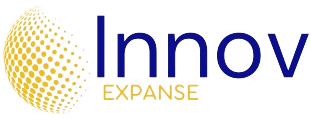An introduction to the project management approach is provided by the Certified ScrumMaster (CSM), an entry-level certification intended for professionals wishing to begin practising Scrum.
The Scrum values, which prioritize accountability, teamwork, and incremental advancement toward a clear objective, are explained to candidates during the certification process.
Scrum Master and Scrum team member roles are open to professionals with the CSM master certification.
SCRUM Masters, while controlling information flow, primarily act as servant leaders, assisting the self-managing, self-organizing team members in achieving their objectives.
Understand Scrum Framework
To tackle difficult problem-solving, it is essential to first grasp the Scrum framework, which was first presented in 1995 and is outlined in The Scrum Guide.
With a Product Owner, a Scrum Master, and Developers on the Scrum Team, each with distinct responsibilities, the Scrum structure is quite straightforward.
Three artefacts are produced by the Scrum Team in five events.
The concise and easily comprehensible Scrum Guide was penned by Scrum co-creators Ken Schwaber and Jeff Sutherland.
Decisions in the Scrum process are made empirically through testing, experience, and observation. Transparency, inspection, and adaptation are the three pillars of Scrum. This lends credence to the idea of iterative labour.
Empiricism is best understood as doing small-scale tests, concluding your findings, and making necessary adjustments to both your methods and your work itself.
Trust is one essential Scrum Team attribute that connects all the other components. An absence of trust within a scrum team will probably lead to conflict and obstacles to completing tasks.
Because they serve as a direction for work and foster trust, the Scrum Values are also essential for Scrum Teams to follow.
Choosing CSM Course
Among the certifications that recruiters and companies most like to see is the CSM. Agile educators worldwide who have undergone extensive screening and evaluation, Certified Scrum educators, are the instructors for the certification course.
The learning objectives outline the essential subjects that are covered in each course, and instructors may add original examples, activities, and resources to make the information more relatable.
After completing the course, you will have access to the mandatory scrum master exam. There are 50 multiple-choice questions in this test; to pass and get certified, you must properly answer 37 of the 50 questions.
Two exam attempts are included in the course fee. Selecting Scrum Alliance will result in the issuance of a certification badge that is accepted by recruiters and employers worldwide.
Attend the CSM Training
A Certified Scrum Trainer must conduct an in-person, two-day training to certify candidates for CSM.
In addition to preparing you for the Scrum Master job, the course gives you an overview of the Scrum framework.
Through exercises, discussions, and case studies based on experience, you will learn about Agile, Scrum Events, Scrum Artifacts, and Scrum Roles.
Depending on the outcome of your CSM exam, you will be qualified for certified Scrum Master certification with the Scrum Alliance after finishing the course.
A two-year membership in the Scrum Alliance, where you will have unique access to priceless materials and tools, is another benefit of the Certified Scrum Master program.
Complete the Course Assessment
There are multiple-choice questions in the online CSM exam. To pass and receive your certification, you need to answer correctly on at least most of the questions.
It is up to you when you take the test, but it must happen after you’ve finished your CSM course. You are permitted to take the test twice for free thanks to the Scrum Alliance.
You will be assessed a small cost for each try if you fail the second time. You won’t receive the answers, but you will be able to see which questions you answered poorly.
Take and Pass the CSM Exam
In contrast to most other professional qualifications, the CSM exam is rather simple to pass. It requires a 74% grade point average.
To take the CSM exam, the cost is just $50.
Also inexpensive are the CSM course fees.
Any sector or organization that embraces Agile values will benefit from your professional progress if you hold a CSM qualification.
This credential will demonstrate to the bearer that they comprehend agile ideas and have an agile mentality.
There will be 50 questions on this exam, and to pass, you must answer 37 of the questions correctly.
There will be an hour-long test. As soon as you turn in your answers, you will receive the exam results.
Also, Staragile has the best available courses if you want to succeed in your scrum exam.
Maintain Your Certification
The Scrum Alliance’s Certified Scrum Master (CSM) is good for two years from the exam date. The CSM certification needs to be renewed after two years. In addition to submitting 20 Scrum Educational Units (SEUs), payment of $100 is required.
One scrum education unit is equivalent to one hour of Scrum or Agile training. Scrum Masters can earn SEUs by taking advantage of the many learning options available on the Leanpitch platform.
A plethora of different mediums are included, such as blogs, webcasts, podcasts, meetups, live webinars, and crash courses.
Additionally, Lean Pitch is the sponsor of the Scrum Alliance user group with over 45,000 members, the Agility Thinking Community.
They regularly host webinars, get-togethers, and other community-beneficial events.
Continue Learning and Practicing
The best calibre of process execution is facilitated by a CSM working with the Scrum team. These professionals guard the group against interruptions from both inside and outside the company.
Those who hold this certification can comprehend team roles, events, and artefacts as well as the Scrum framework.
The Certified Scrum Master (CSM) credential is a beginner-level certification that aims to give professionals a foundational grasp of the project management technique, starting with Scrum practices.
Those who obtain this certification are qualified to provide their services for the roles of Scrum Master or Scrum Team Member.




0 Comments